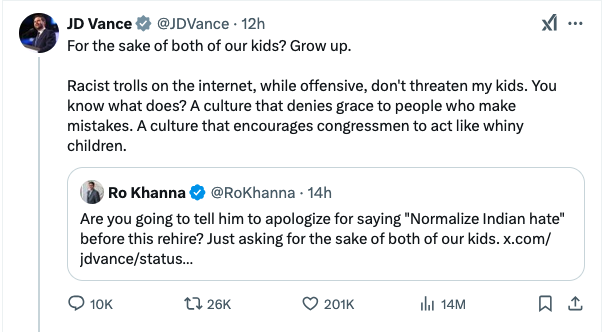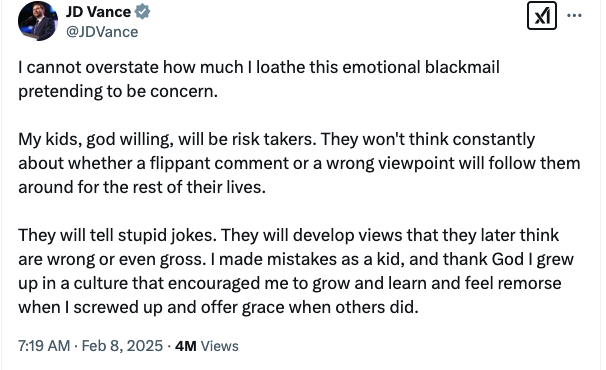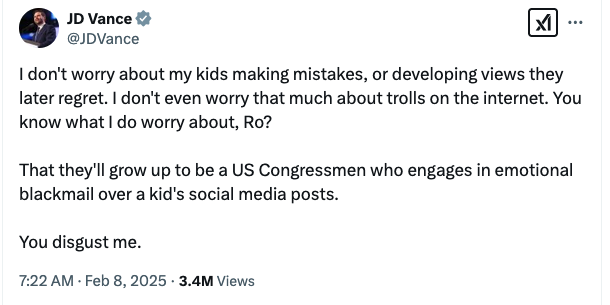Sometimes truth really is stranger than fiction, or should I say, better than fiction, more entertaining, and more full of meaningful symbolism and crazy coincidences. What are the odds that the main mechanism for laundering money from the US government would be called USAID? It’s just asking to have an “s” added to the end, which is exactly what some wags on the internet did as the story blew up in the last couple of weeks thanks to Elon Musk and his team of computer nerds cutting off the money supply. I doubt that the jokesters know just how accurate the USAIDS moniker is. So, let’s tell a story. It’s a true one, too.
So, there’s this scientist called Kary Mullis who, I must admit, is exactly my kind of guy: an iconoclastic, fun-loving truth seeker. If I was going to write a science fiction novel with a comedic twist, I’d make somebody like Kary Mullis the hero. In between surfing, experimenting with drugs, and picking up chicks, he’d uncover the secrets of the universe.
I wouldn’t have to make that up; it’s exactly how Mullis lived. In fact, even though he got a PhD in something or other, Mullis didn’t go immediately into science but tried writing novels and running his own business, among other things.
Eventually, Mullis wound up in the biomedical industry and saw a lot of the shenanigans (read “fraud”) with his own eyes. While working at one of those companies, he invented the Polymerase Chain Procedure (PCR). He later won the Nobel Prize for his troubles. The PCR was never designed as a diagnostic tool for viral disease, but since Mullis invented the thing, he was hired in the 80s to use the PCR to research how HIV caused AIDS. At the time, Mullis was not an “AIDS denier” (or a climate denier, anti-vaxxer, transphobe, conspiracy theorist, anti-whatever-phobe-denier-theorist). No doubt he took the gig because it paid well, and who wouldn’t want to work on what was then one of the biggest issues of the day?
So, Mullis gets to work, but his employment is covered by grant money from the US government which requires some kind of regular progress reports. At the beginning of a report, Mullis writes the statement “HIV causes AIDS” but, as a good professional scientist, he knows that he needs to cite a reference for such a statement. He goes looking for the scientific paper that is the gold standard which definitely proves that HIV causes AIDS. He can’t find it. This is all happening in the days before the internet, and so Mullis takes the old-fashioned route of calling up people he knows in the virology field and asking them where to find the paper. None of them know. Eventually, Mullis personally meets with the virologists who have publicly claimed that HIV causes AIDS and asks them for the reference to the paper. Not only do they not know, but they are also clearly uncomfortable with the question. Mullis never finds the paper that proves that HIV causes AIDS, because it doesn’t exist. Apparently, he was the only “scientist” who had a problem with that.
Well, that’s not entirely true. There was at least one other scientist who also had a problem with it, and if this whole story really was a fictional comedy, he and Mullis would be a perfect odd-couple pairing. Mullis is the quintessential American scientist in the mould of Richard Feynman: iconoclastic, fun-loving, sociable, good with the ladies.
Peter Duesberg might now live in America, but he’s a German by birth and by temperament. He belongs to the stern, dour, but also sardonic German scholarly tradition, the kind of scholar who knows that most “new discoveries” are bullshit, but at least does them the courtesy of dismantling them with precision and attention to detail. Although they are very different kinds of men, what both Duesberg and Mullis have in common is a dedication to the truth.
Duesberg starts to realise that the whole HIV causes AIDS theory doesn’t make sense, and the more he digs into it, the less sense it makes. At the beginning, Duesberg’s contribution is limited to just asking some simple, straightforward questions of the theory. He gets brushed off in the same manner that Mullis did. But Duesberg is a virologist himself, and so he has many more opportunities to ask questions of the right people, including at scholarly conferences. The gentle brushing-off response starts to be replaced by something more aggressive. Duesberg doesn’t like that. He’s also noticed that a lot of these American scientists seem to be very wealthy. The ones who are speaking loudly on the subject just happen to have various copyrights and patents on the technology that is now being purchased with the government money that is being thrown at the “AIDS problem”. A lot of people and corporations are making out like bandits. What’s more, the whole thing is a boon for virology in general, which is now swimming in government grants. Even the virologists who are not actively involved don’t appreciate Duesberg threatening to kill the golden goose.
Most people at this point would have gotten the message and just dropped the whole thing. But Duesberg’s got that really annoying habit of preferring truth over money. This is back in the 80s, when the US mainstream media was not as in the pocket of monied interests as it is now. Duesberg gets himself interviewed on some pretty well-known media outlets. At that point he has crossed the line and openly challenged the virological powers-that-be. To cut a long story short, they proceed to destroy his career and reputation. Bear in mind, the very same people who were controlling the government purse strings were the ones who were pocketing a lot of the money, either directly or indirectly.
Sound familiar? It should. AIDS was very much the template for USAIDS, a heady mix of corrupt science and greedy capitalism. But most importantly, the whole thing was government-funded, squillions of dollars just waiting to be released like water out of a dam spillway. All you needed to do was convince the politicians and bureaucrats to open the gate. How do you do that? By creating public hysteria. Convince the public that they’re literally going to die and allow the politicians and scientists to become the heroes who are going to save the day.

No doubt plenty of enterprising people watched the AIDS dynamic closely and realised they could try the same trick with “climate science”, “gender science”, “renewable energy”, “Chinese bat soup” etc. All you needed was somebody in a white lab coat to take to the pulpit and preach doom and gloom.
In one respect, Mullis and Duesberg were wrong. (US)AIDS is a disease. It’s also not inaccurate to call it a viral disease. It’s not a disease of the body, however, but of the body politic. One of its main symptoms is when real scientists get their careers and reputations destroyed for speaking the truth.




